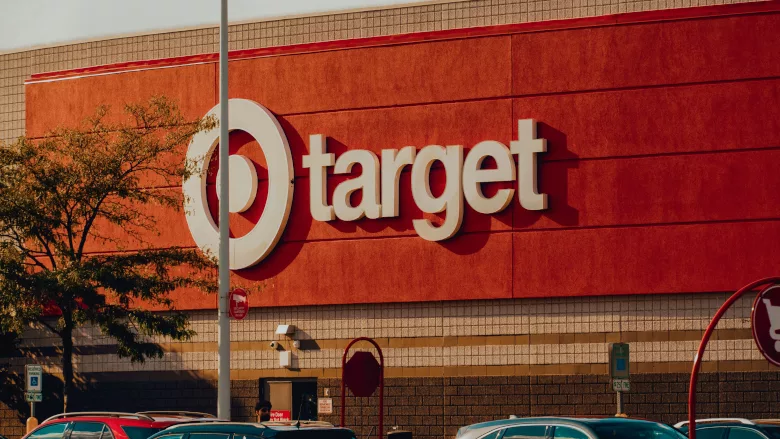Target set to close 9 stores: The effects of organized retail crime

Image via Unsplash
Last week, big box retailer Target announced plans to close nine locations in major cities across four states. The company cited an increase in organized retail crime (ORC) as a major contributing factor leading to an unsafe environment for employees and making business unsustainable.
“In this case, we cannot continue operating these stores because theft and organized retail crime are threatening the safety of our team and guests, and contributing to unsustainable business performance,” Target said in a statement. “We know that our stores serve an important role in their communities, but we can only be successful if the working and shopping environment is safe for all.”
Effective Oct. 21, Target will close a New York location in Harlem, two Seattle locations, three stores in San Francisco/Oakland and three locations in Portland. Employees currently working at the locations set to close will have to opportunity to transfer to other Target locations.
“Organized retail theft and repeated shoplifting by other offenders, coupled by violence increasingly permeating such activities, are strategic threats to businesses, and more broadly, civil society as the implications of such realities are: closure of stores and appending job losses, declining offerings in communities that are often already underserved, declining revenue for firms and shrinking tax bases, abandonment of properties and atrophying of cities, fear, and acknowledgement that, here too, society is not functioning as it should,” said Dean Alexander, Director of Homeland Security Research Program and Professor, Homeland Security at the School of Law Enforcement and Justice Administration at Western Illinois University.
Prior to making the decision to close, Target stated they invested heavily in strategies to prevent and stop theft and organized retail crime in stores, such as adding more security team members, using third-party guard services and implementing theft-deterrent tools across the business.
“Despite our efforts, unfortunately, we continue to face fundamental challenges to operating these stores safely and successfully,” Target said in a statement.
Matt Kelley, Head of Retail at LVT, said retail security can make or break the rest of the business.
“A store needs a safe, welcoming environment to drive customer traffic to the retail location and ultimately top-line sales. Specifically to physical security, maintaining a strong impression of control in the parking lot is paramount to the success of a physical security program,” Kelley said.
Target isn’t the only retailer feeling the effects of ORC. In fact, earlier this month, Nike announced it will permanently close a Portland, Oregon location, which was temporarily closed last year citing theft and safety concerns.
Organized retail crime isn’t a new phenomenon for security leaders, however incidents of ORC do seem to be on the uptick throughout the country. According to numbers released last week by the National Retail Federation (NRF), retailers have seen a dramatic jump in financial losses associated with theft.
According to the 2023 National Retail Security Survey, when taken as a percentage of total retail sales in 2022, shrink accounted for $112.1 billion in losses, up from $93.9 billion in 2021. According to the survey, the average shrink rate in FY 2022 increased to 1.6%, up from 1.4% the previous year. Shrink percentages can vary significantly by retail sector. On par with previous years, internal and external theft accounted for nearly two-thirds (65%) of retailers’ shrink.
“Retailers are seeing unprecedented levels of theft coupled with rampant crime in their stores, and the situation is only becoming more dire," NRF Vice President for Asset Protection and Retail Operations David Johnston said in a statement. "Far beyond the financial impact of these crimes, the violence and concerns over safety continue to be the priority for all retailers, regardless of size or category.”
While businesses have a key role in securing their establishments, government's failure to ensure safety and stability due, in part, to legal reforms impacting shoplifting and bail (reform), should not be underestimated, Alexander said.
“The tacit approval of lawlessness by failing to craft and enforce guardrails that contribute to functioning of civil society are unsustainable,” Alexander continues. “Just as we should expect civility and not tolerate violence in our political system, so too, we should strive (and expect) the government to create settings whereby businesses can function well without the fear of having their offerings systematically stolen and their employees and customers fearful while at work or entering shops.”
Alexander said there are some actions that could be taken to help address issues contributing to ORC.
“Steps to resolve these circumstances include: new laws that significantly raise penalties for shoplifting and retail theft, prosecutions of such infractions, greater use of money laundering statutes as funds garnered by such criminals are ripe for such prosecutions, prospects of civil and criminal forfeitures and civil suits (for torts/damages) against principals caught in organized retail theft schemes, more emphasis on securing facilities and their assets, continued leveraging of technology, expanded awareness of methodologies of organized retail theft and steps to stymie such actions, establish (or improve) procedures by stores (in conjunction with police) to deal with flash mobs, more collaboration with online sales presences that are vulnerable to resale of stolen goods (and penalties to those firms which fail to police their forums), modify accessibility to high risk and value products, reinstate manned checkout counters, increase customer service/interactions with customers, renewed mindset by anyone entering a shop that it is a place of business that expects payment for items sought or services rendered and not a location where theft and violence are permitted, among other efforts,” he said.
Looking for a reprint of this article?
From high-res PDFs to custom plaques, order your copy today!









